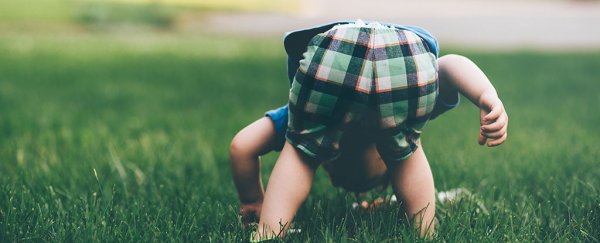What was your first memory? It's never a memory of being a baby - most people's earliest memory is from when they were around three or four years old.
But why can we not remember our infant memories? And are they really lost, or just forgotten?
A team of neuroscientists from the University of Toronto set out to investigate, using mice to identify when and how brains forget these memories.
"Rapid forgetting has been attributed to the fact that children lack the cognitive tools to successfully consolidate and organise autobiographical memories at this early developmental stage," the team writes in the study.
"However, similar accelerated forgetting in infancy is also observed in non-human species, including mice, suggesting that a complete neurobiological account cannot be limited to purely human phenomena."
The researchers trained infant mice to associate a particular box with a small zap to the foot. The mice lost memory of this zap within 15 days, which is nearly analogous to humans forgetting memories of their infancy at around seven years old.
The researchers then took a new set of infant mice and tagged the specific neurons active in the hippocampus when they were placed in the box and had their foot lightly zapped.
Weeks afterwards, when the memory should have been forgotten, the researchers stimulated the tagged neurons using a precise method called optogenetics, and found the mice behaved as if they recognised the box once more.
"The memory recall was remarkable," says senior author Paul Frankland, a neurobiologist from the SickKids Research Institute, and the University of Toronto.
"These results suggest our earliest experiences are not completely forgotten or erased from the brain. Instead, we can bring them back through direct stimulation."
The recall wasn't perfect, though. Only about 70 percent of the mice appeared to recognise the box in the following 15-90 days, and the researchers think this is partly to do with incomplete memory recovery.
"What we're doing by stimulating the collection of neurons, which are active during encoding, is giving the system a little bit of a boost," Frankland told Sukanya Charuchandra at The Scientist.
"We're providing not only the external cues as the box but also some internal impact as well, which sort of pushes the memory above threshold so then the animals are able to remember it."
The researchers think that the retrieval of memories is only part of the problem of infant memory loss, and with this incomplete memory recovery, there might also be issues with storage.
"The findings of later accessibility of early memories are reminiscent (no pun intended) of those we see with human children," Emory University psychologist Patricia Bauer, who was not involved in the research, told The Scientist.
Bauer is referring to studies of older children, who can be provided cues to recall things from their infancy.
But despite this, we don't know if human brains deal with infant memories the same way as they seem to do in mice, so it's best to exercise caution before drawing any major conclusions about our own memory.
Still, the results provide an interesting look into how the brain can store and 'forget' memories from childhood - and it's tantalising to think that our very earliest moments in life might really be locked up in our neurons somewhere.
The research has been published in Current Biology.
